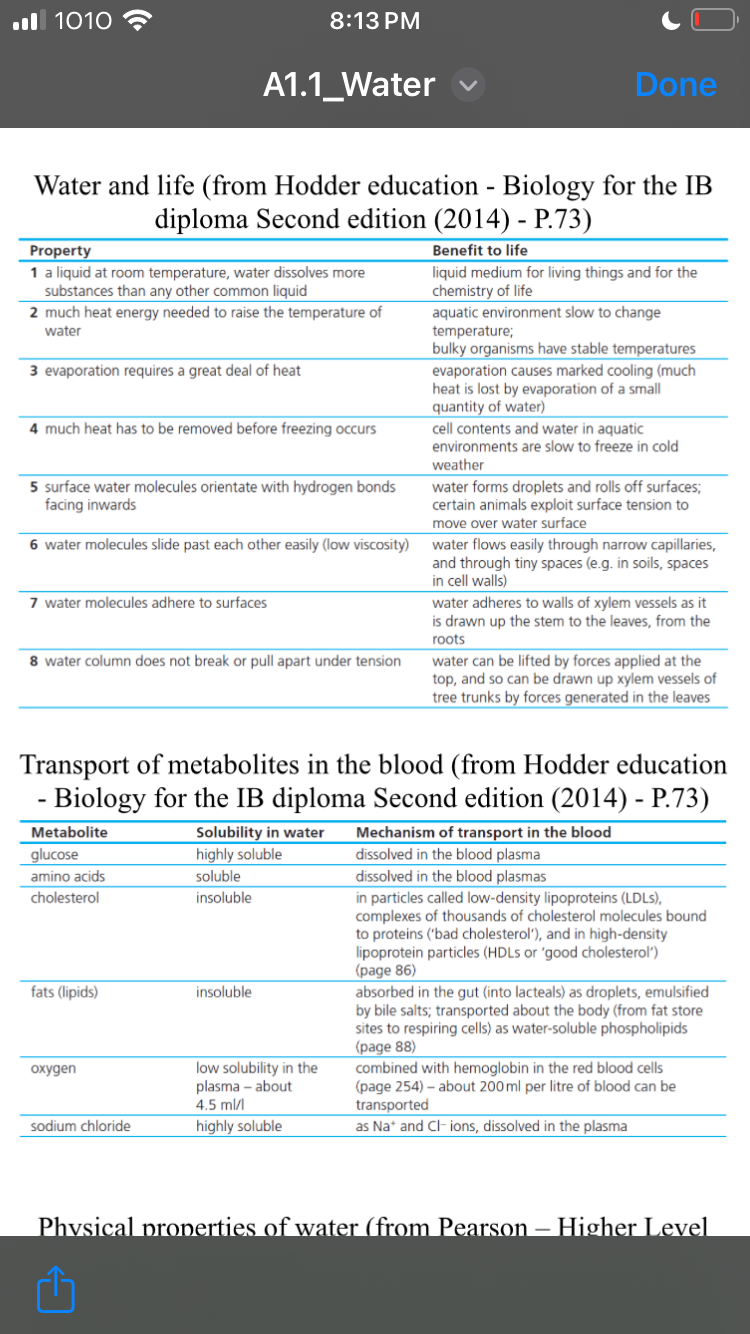What are the properties of water and their benefits to life, as well as how different metabolites are transported in the blood?

Understand the Problem
The question is asking about properties of water and how they relate to life, along with the solubility and transport mechanisms of metabolites in the blood. This information pertains to biology, particularly focusing on the significance of water for living organisms.
Answer
Water's properties aid in nutrient transport and temperature regulation. Glucose dissolves in plasma, cholesterol uses lipoproteins.
Water's properties such as solvent ability, high heat capacity, low viscosity, and cohesion benefit life by enabling chemical reactions, nutrient transport, temperature regulation, and structural stability. Metabolites like glucose and amino acids dissolve in plasma, while cholesterol and fats use lipoproteins and phospholipids.
Answer for screen readers
Water's properties such as solvent ability, high heat capacity, low viscosity, and cohesion benefit life by enabling chemical reactions, nutrient transport, temperature regulation, and structural stability. Metabolites like glucose and amino acids dissolve in plasma, while cholesterol and fats use lipoproteins and phospholipids.
More Information
Water supports life by dissolving nutrients, facilitating chemical reactions, and stabilizing temperature. Different solubilities of metabolites affect their blood transport mechanisms.
Tips
Ensure you understand solubility's effect on transport mechanisms, like why cholesterol requires lipoproteins due to its insolubility.
Sources
- Biological Roles of Water - sitn.hms.harvard.edu
- Properties of Water - Biology LibreTexts - bio.libretexts.org
AI-generated content may contain errors. Please verify critical information